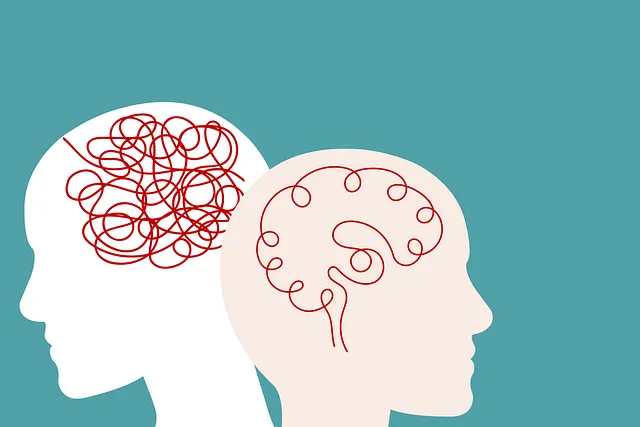Kaiser Permanente mental health Denver navigates the city's vibrant cultural landscape by prioritizing cultural sensitivity and diversity. Through their Community Outreach Program, they bridge gaps with local groups, improve access to care, and enhance patient outcomes. By integrating cultural competency into risk assessment and offering tailored interventions like Trauma Support Services, Kaiser Permanente empowers individuals from diverse ethnic backgrounds to build resilience. Effective communication strategies, including active listening and clear language, create safe spaces for honest expression. Training programs for mental health professionals should emphasize cultural sensitivity and practical guidance for inclusive environments, fostering open communication and effective treatment across diverse communities.
In the diverse city of Denver, cultural sensitivity in mental healthcare is paramount. This article explores how organizations like Kaiser Permanente are navigating the complex landscape of cultural diversity to improve patient outcomes. We delve into the specific impacts of culturally sensitive practices at Kaiser Permanente and highlight effective communication strategies for mental health professionals. Additionally, we discuss the importance of building inclusive environments through training and support, focusing on best practices that can be adapted to meet the needs of Denver’s mental healthcare system.
- Understanding Cultural Diversity in Denver's Mental Healthcare Landscape
- The Impact of Cultural Sensitivity on Patient Outcomes at Kaiser Permanente
- Effective Communication Strategies for Culturally Competent Practice
- Building Inclusive Environments: Training and Support for Mental Health Professionals
Understanding Cultural Diversity in Denver's Mental Healthcare Landscape

Denver’s mental healthcare landscape is a vibrant tapestry woven with threads of diverse cultural backgrounds and unique experiences. As institutions like Kaiser Permanente mental health Denver expand their services, it becomes increasingly vital to embrace and understand this cultural diversity. The city’s ever-growing population includes individuals from various ethnic groups, each bringing their own traditions, beliefs, and approaches to well-being. For example, Native American communities in Denver have distinct healing practices that incorporate ancestral connections and holistic therapies, which mental health professionals can learn from and integrate for more comprehensive care.
This cultural sensitivity is not just about recognizing differences but also fostering resilience building within diverse communities. Kaiser Permanente’s Community Outreach Program Implementation has played a crucial role in bridging the gap between healthcare providers and these communities. By engaging with local groups and adapting services to meet specific needs, mental health professionals can improve access and outcomes for all Denver residents. Moreover, integrating cultural competency into risk assessment for mental health professionals ensures that care is tailored, respectful, and beneficial to each individual, strengthening the overall resilience of the community.
The Impact of Cultural Sensitivity on Patient Outcomes at Kaiser Permanente

At Kaiser Permanente mental health Denver, cultural sensitivity has been identified as a key driver for positive patient outcomes. By recognizing and respecting the diverse cultural backgrounds, beliefs, and practices of their patient population, the organization has significantly enhanced its ability to provide effective care. This approach is particularly crucial in addressing the unique challenges faced by individuals from various ethnic and cultural groups, who may have different expectations and preferences regarding mental healthcare.
The integration of cultural sensitivity has led to improved access to care, better engagement with patients, and more tailored interventions. For instance, offering Trauma Support Services that are culturally competent ensures that survivors of traumatic events receive care that is empathetic and responsive to their specific needs. Additionally, the Mental Wellness Podcast Series Production caters to diverse audiences by creating content that resonates with different cultural perspectives, fostering a sense of belonging and encouraging open conversations about mental health. This holistic approach not only strengthens patient-provider relationships but also facilitates resilience building among individuals seeking support at Kaiser Permanente mental health Denver.
Effective Communication Strategies for Culturally Competent Practice

Effective communication is a cornerstone of culturally competent mental healthcare practice. At Kaiser Permanente mental health Denver, professionals are trained to adapt their approach based on cultural background, language preferences, and unique personal experiences. Active listening, clear and respectful language, and open-ended questions create a safe space for clients to express themselves honestly. Mental wellness coaching programs development often emphasizes these strategies to foster strong therapeutic alliances across diverse populations.
Integrating culturally sensitive communication involves understanding non-verbal cues, recognizing potential biases, and being mindful of power dynamics. For instance, using simple language and avoiding jargon ensures accessibility. Encouraging clients to share their perspectives through mental wellness journaling exercises guidance can offer valuable insights into their cultural frameworks and personal histories. This holistic approach, combined with risk assessment for mental health professionals, enables providers to deliver care that is both effective and respectful of individual needs.
Building Inclusive Environments: Training and Support for Mental Health Professionals

Creating inclusive environments is paramount in mental healthcare, especially when considering the diverse needs and backgrounds of Denver’s communities, as exemplified by Kaiser Permanente mental health services. Training programs for mental health professionals should focus on cultural sensitivity, ensuring they are equipped to provide care that respects and embraces various cultural perspectives. This involves learning about different cultural practices, beliefs, and potential barriers to treatment. By understanding these nuances, healthcare providers can create a safe and supportive atmosphere, fostering open communication.
Professional development should include practical guidance, such as incorporating mental wellness journaling exercises or self-care routine development for better mental health, tailored to diverse populations. Encouraging inner strength development through evidence-based practices allows professionals to empower individuals from all backgrounds while offering effective treatment strategies.
Cultural sensitivity is a critical component of high-quality mental healthcare, as evidenced by the successful practices at Kaiser Permanente in Denver. By prioritizing understanding and addressing cultural diversity, implementing effective communication strategies, and fostering inclusive environments, mental health professionals can significantly improve patient outcomes. Integrating these principles into the training and support systems of Kaiser Permanente and similar institutions ensures that services are tailored to meet the unique needs of a diverse population, ultimately enhancing access to care and promoting better mental health outcomes for all.






